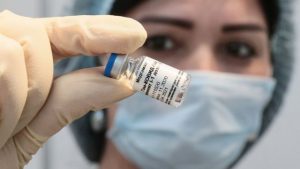
The Cabinet of Ministers of Ukraine on Wednesday decided to create a working group for consultations with the European Commission on aligning an approach on the introduction in Ukraine carbon tax – the carbon border adjustment mechanism (CBAM), permanent representative of the Cabinet of Ministers in the Verkhovna Rada Vasyl Mokan said.
“The European Commission is expected to submit a relevant legislative proposal to the European Parliament and the European Council by mid-2021. That is why there was a need for a unified approach of the Ukrainian side for communication and interaction with the European Commission on the issue of introducing CBAM in Ukraine,” Mokan wrote on his Telegram channel.
According to the explanatory note to the document, within the framework of the working group it is planned to develop a consolidated position of the Ukrainian side. The working group was chaired by Deputy Prime Minister for European and Euro-Atlantic Integration Olha Stefanishyna and Deputy Minister of Economy, Trade Representative of Ukraine Taras Kachka became her deputy.
As reported, the official documents of the European Commission and the European Parliament suggest that an individual approach will be applied to the third countries with which the EU has an Association Agreement or a free trade area when introducing CBAM.
CBAM envisages the introduction of an environmental duty for the import of products into the EU, depending on the amount of carbon dioxide emissions during the production process. Presumably, the mechanism will be launched on January 1, 2023 as part of the implementation of the Green Deal strategy.

The products of Strauss Group, one of the largest coffee producers in the world, retained the first place in the Ukrainian roasted coffee market in 2020, increasing its presence there by 0.5 p.p. compared to 2019, up 17.9%, the company said in its annual report.
According to the company, its share in the Ukrainian ground and instant coffee market decreased by 0.9 percentage points last year, to 8.9%.
Strauss Group clarified that its main competitors in Ukraine were the international concern JDE, Nestle Corporation and the Ukrainian manufacturer Galka. According to its data, JDE, which produces coffee under the Jacobs, Tassimo, Moccona, Senseo, L’Or trademarks, in 2020 increased its presence in the Ukrainian market of ground and instant coffee by 3 p.p., to 46.8%.
According to Strauss Group, in the Ukraine-Russia region, coffee sales in 2020 decreased by 22.1% compared to 2019, to 128 million shekels. The company clarified that the reason for the decline in sales in the Ukrainian market was the increased economic uncertainty, mainly due to the consequences of the outbreak of COVID-19.
Strauss Group noted the growth in consumption of roasted coffee beans in Ukraine as part of the trend in coffee culture and premiumization of home consumption.
As of March 22, the exchange rate of the new Israeli shekel was UAH 8.4005.
National bank of Ukraine’s official rates as of 29/03/21

Source: National Bank of Ukraine
Dynamics of balance of payments of Ukraine (usd mln).


As of March 25, about 350,000 people have enrolled for the waiting list for vaccination against coronavirus (COVID-19) disease, according to the website of the Public Health Center.
One can enroll for the vaccination waiting list from March 1 through the Diia portal or mobile application, as well as through the call center of the Ministry of Health.
The center notes that a person does not need to enroll for a waiting list if the person is:
– an employee of the healthcare, education or social sphere, working or staying in boarding schools, nursing homes, etc.;
– soldier;
– an employee of critical structures of state security.
In this case, the employer or the head of the institution will inform a person about the possibility of getting vaccinated.